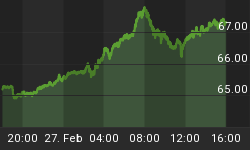Following complaints from tech giants, both in court and on social media, the U.S. government has canceled its $10-billion cloud-computing project awarded to Microsoft.
The now-infamous Joint Enterprise Defense Infrastructure project (JEDI) contract involves transitioning massive amounts of Defense Department (DoD) data into a commercially operated cloud system.
JEDI will collect and store sensitive military data and give the U.S. military access to the most advanced technology, including artificial intelligence.
The contract awarded by the Pentagon in late 2019 has been on hold since Amazon filed a lawsuit challenging it and complaining that the decision was full of “egregious errors” and influenced by “improper pressure from Trump”
Microsoft and the Pentagon attempted to get work underway on the contract, but the U.S. Court of Federal Claims forced activity to halt last year.
In late April, the court decided not to dismiss the lawsuit filed by Amazon, and the government then announced it would review the project.
Now, as the drama continues, the DoD says it will try to find a compromise that would see a contract for both Microsoft and Amazon.
John Sherman, acting chief information officer for the defense department, told reporters the Pentagon would split the work between the two tech giants, and potentially even three additional U.S. companies. Sherman said JEDI would, in fact, be replaced by a new program called Joint Warfighter Cloud Capability. (So much for the catchy acronym).
The Pentagon failed to mention the lawsuit as the reason for taking the project from Microsoft. Instead, it cited “evolving requirements, increased cloud conversancy, and industry advances,” as the reason for the termination.
For now, only Amazon and Microsoft meet the department’s requirements, but the Pentagon said that the others have till April to work on their capabilities.
Other top cloud companies in the running include Oracle, Google and IBM--the same companies that were in the running back in 2018 when bidding opened for the project.
Back then, Amazon was the favorite, at least according to the media, to win the Pentagon contract given its existing projects with the U.S. government, including a $600-million project with the CIA.
Google dropped JEDI after employee protests over producing technology for the U.S. military. The company said that the project wasn’t in line with its principles and it withdrew from bidding.
“We are not bidding on the JEDI contract because first, we couldn’t be assured that it would align with our AI Principles,” a Google spokesperson told Bloomberg at the time. “And second, we determined that there were portions of the contract that were out of scope with our current government certifications,” the spokesperson said.
Then, in December 2018, Oracle, reportedly favored by former president Donald Trump, was shut out of the bidding and responded by suing the DoD, claiming that the contract was created in a way that favored Amazon.
The accusation was later boosted by Trump who suggested that Amazon was part of a conspiracy to use the deal to create a “Ten-Year DoD Cloud Monopoly.” Then it quickly escalated into accusing Amazon of scamming the U.S. Postal Service and calling the Bezos-owned Washington Post a Russian asset.
















